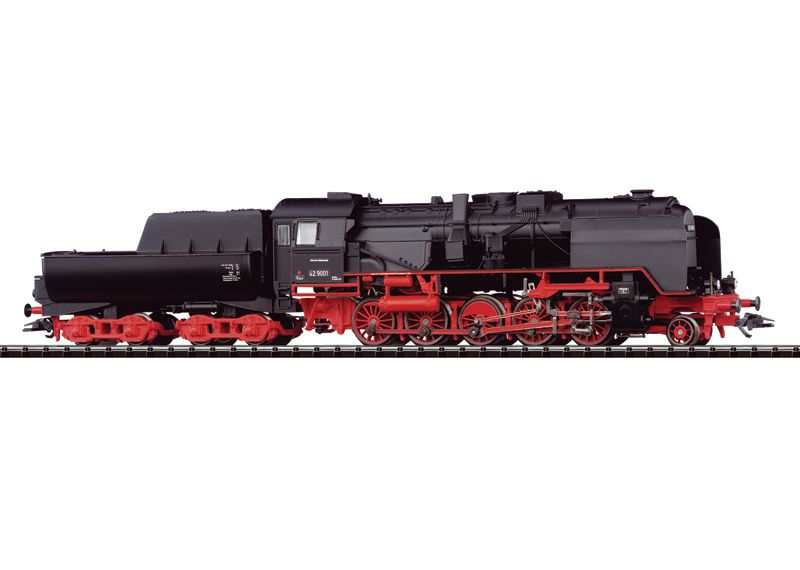Steam Locomotive with a Tender.
Prototype: German Federal Railroad (DB) class 42.90 Franco-Crosti freight locomotive. Version with Wagner smoke deflectors. 2-10-0 wheel arrangement. Use: Medium size freight trains.
Most Important Facts
| Article No. | 22116 |
|---|---|
| Gauge / Design type | Trix H0 / |
| Era | III |
| Kind | Steam Locomotives |
Check with your local dealer Find Dealer
-
Product description
Model: Era III. The locomotive has a die-cast metal frame and boiler. It comes with an 8-pin NEM digital connector. 5-pole motor in the boiler. 5 axles powered. 4 traction tires. The locomotive has an articulated frame to enable the unit to negotiate sharp curves. The headlights are maintenance-free LED's. Close coupling between the locomotive and tender. The locomotive and the tender have NEM coupler pockets, with a close coupler mechanism on the tender.
Length over the buffers 267 mm / 10-1/2".An AC version of this model is available in the Märklin assortment under item no. 39161.
Spare parts for our articles can be found here in our spare parts search.
-
Publications
- New Items 2005 - Main Catalog 2006 - Main Catalog 2007/2008
-
Prototype information
The Design Principle by Engineer Franco and Professor Crosti. A Franco-Crosti boiler is a conventional locomotive boiler with an additional boiler for heating feed water with the assistance of the passing flue gases. This second boiler is therefore called an exhaust gas pre-heater. The Italian designers Franco and Crosti already built their first test machines with this technology during the 1930s. The savings in coal amounted to approximately 20% with the improved efficiency. The German Federal Railroad took advantage of this idea and contracted Henschel to build two locomotives. Although they originated from class 52 parts, the two Franco-Crosti locomotives were assigned the road numbers 429000 and 429001. The exhaust gas pre-heater is situated below the regular boiler in these locomotives. The flat smokestacks for operation project from both sides of the boiler, which results in a very striking appearance. The standard smokestack is no longer used to discharge the exhaust gases during operation; it is only required for firing up the locomotive. Despite the increased efficiency, the operating costs were rather high and pre-heater boilers were rather subject to corrosion. The two locomotives were taken out of service in 1959 and 1960, respectively.




